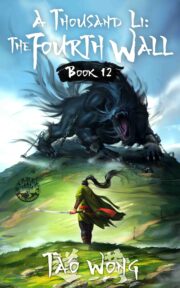Writing Down Fear
by Hunter Liguore
What do you fear when you sit down to write? Fear can be the debilitating emotion that prevents us from getting into the chair in the first place. It’s the force that makes lengthy excuses for why we can’t write. Next to procrastination, fear can cause us to abandon projects, call it quits, or worse, abandon the writing completely.
What is your ‘big’ reason why you can’t write today?
That is the question each writer must face even before the idea blossoms or the white screen is put before us. So I’ll ask again—what are you waiting for? Most writers will answer with a list of life conflicts that get in the way of writing. See if any of these ring true:
- Waiting for your loved ones or kids to go to bed/work/school.
- Waiting to finish a big project at work or a semester at school to end.
- Waiting until a vacation—or money to go on the vacation where you’ll have INFINITE time to write.
- Waiting until you clean out a room to make an office space to write.
- Waiting until your head is cleared out of distractions or you’re really inspired.
The list of excuses is never-ending, and depending on your situation, most writers have at least one ‘big’ reason why they can’t start writing today. Mine used to be that I had two jobs and went to school full time; I couldn’t possibly find time—there was none. Or so I thought. Underneath the excuses was a greater demon: fear. In order to find time in my ‘busy’ schedule, I had to face the true obstacle—and I did. Here’s how.
FACE YOUR FEARS
Fear shapes our lives in many ways, not just in writing. The goal is it head-on and retrain the voice inside you from a negative one to a positive one. Life happens, but if you truly want to write, you have to negotiate time and rewrite the excuses in order to create a future where you have ample time to work.
Start by making a list of what you are most scared of. Fear comes in many forms. We fear we’re too old. We fear failing. We fear our work won’t be good enough. We fear completing a goal. We fear actually having to do the work that we told ourselves we would do. We fear dying. We fear accomplishment. We fear the struggle. We fear we’ll ruin a story that started off good. We fear the next chapter will not glow like those preceding it. We fear our own creativity—will it be enough?
With fear comes the presence of anxiety when they’re writing. On the one hand, we enjoy writing, and on the other, we’re seeking some distraction to get out of doing it. But we have to face it. Knowing what you fear is the place to begin.
DAILY DOSE OF PERSISTENCE
Persistence isn’t an easy skill to acquire. It battles with our insecurities and weaknesses. Writers should listen to the voice of persistence to counter their fears. It takes getting used to sitting at a computer, like it’s a ritual, and type 500 words a day, and endeavoring to reach 1,000, then 1,500, and then 2,000, and more.
Persistence tells fear to take a hike. Persistence will get you up in the middle of the night when you have a breakthrough since you won’t have any other time later in the day. Writers need to discipline their time and move past fear into a place of habit that includes scheduled time for writing. Be persistent. Don’t give up on you or your story.
STEAL TIME
It takes hard work to negotiate and master time. One of the ways I learned to make time for writing was to ‘steal time’ throughout the day. Stealing time allows you to be focused on your story in the downtime, a necessity to keep the plotline fresh and your momentum going. Equally, the more you think about making time, the more you’ll become inventive to find ways to devote more of it to your goals.
By stealing pockets of time throughout your day, the amount can be added up and count for actual writing time. So, if you can’t devote two hours a day, only one, find a way to make up that hour elsewhere in the day. Look for moments you are wasting. For instance, rather than read another novel or watch another 22-hour TV series, write! Record a chapter on the morning commute and transcribe it on your lunch. If you get a ten-minute break, use it to conduct research for your story. Make character notes standing in a line at the check-out. Waiting at a drive-through? Work! If you workout at the gym, make it mental time to explore your storyline. Allocate social media time to writing. Cancel gatherings and outings and make you/your work the most important thing in your life.
There are 1440 minutes in a day—start stealing them for your writing! Trust me, they WILL add up and you will get very excited about that and make even more time.
MAKE GOALS THAT WORK FOR YOU
Conquering fears starts with making goals and sticking to them—but choose goals that actually work for YOU. If writing one line a day is what works, then make it a daily goal and be proud of it. One line adds up fast. If it’s a haiku a day, go for it! If it’s writing ten chapters every Friday night, perfect.
I subscribe to the 2,000 words a day for five days, or 10,000 words a week. I allow myself two days to do other things, or if something comes up, it defaults to one of the non-writing days. In my experience, writing every day sets up the writer to fail, since it is usual for at least one day a week to be pure chaos. Less than five makes it easy to let it the story momentum fall by the wayside. In the end, make the goals count and stick to them.
MAKE A CONTRACT
When we make a commitment with ourselves to complete a project, we’re more apt to follow through so we don’t let ourselves down. Try this. Copy the following statement somewhere that you can read in the morning and at night:
I will commit to writing X words a day X amount of days a week. My goal is to have X amount of words written in X amount of weeks/months. I won’t allow fear to debilitate me and prevent me from writing. Although ‘life happens,’ I won’t use it as an excuse; instead continuing to focus and make my word counts by week’s end. I will do this for myself because I believe in my talent. Above all, when I doubt that I have time for writing, I will assert that I do, and renegotiate my time schedule to include writing.
KEEP A WRITING JOURNAL
Every morning I start the writing day with journaling about my novel. I go through everything I’m thinking about: plot, characters, what I hope to accomplish—but I also talk about my fears. As a method of self-therapy, the writing journal is a one-on-one conversation about what you are facing that day and how you hope to overcome it. Some days you do; some other days, you don’t. By writing it down, carrying it with you all day, you’re signaling that your writing is important. A time will come, when you will look back at your journal and see a very courageous writer.
CONCLUSION
While writing can be a fun activity, it is mostly hard work. The late-author Ray Bradbury once explained that it can take thirty years before you write a really good story! This from an author who made a goal of writing a short story every day. As you make and succeed in conquering your fears, many of the things you thought were important will become secondary to your writing, especially when you devout more time to it. It doesn’t get easier the more you write. If anything, your ability to be persistent will strengthen—and when the Universe throws an obstacle your way, you won’t react, you’ll renegotiate your time.
Work hard for it. You owe it to yourself to conquer your fears, your excuses, and your obstacles. Like the hero in your story, you have a Call to Adventure: Will you finish a novel? Will you write today? Will you become a full-time writer? Fill in your own Call to Adventure and work as hard as your hero to overcome life’s challenges. The one thing is certain about writing. If you don’t make time, it won’t happen.
Make a goal today and stick to it.
•••
Hunter Liguore teaches creative writing in the MFA program at Lesley University. An award-winning author, her work has appeared in over a hundred and fifty publications, internationally. Her novella, L’ultimo Polare Orso, has been published in Italy, 2018. Her screenplay, Everylife, is a 14-time festival winner/finalist in 2019. For more publications, awards, visit: hunterliguore.org


